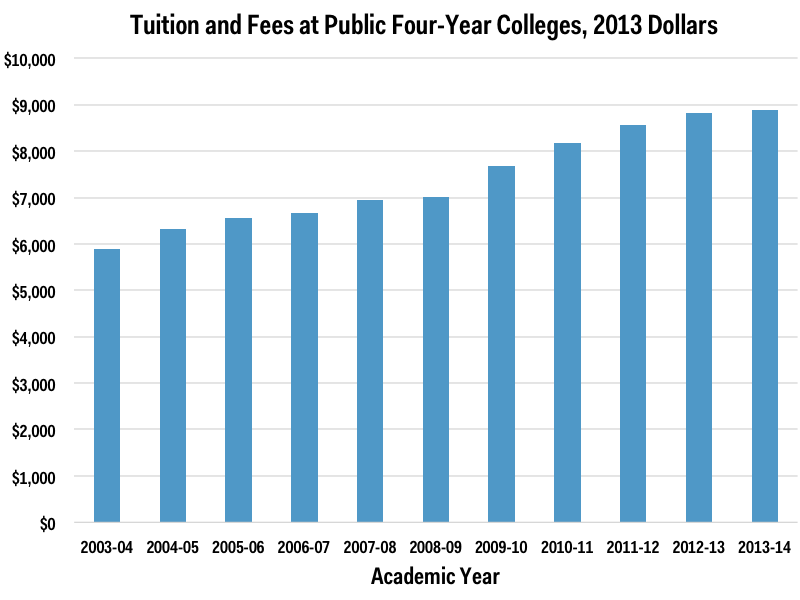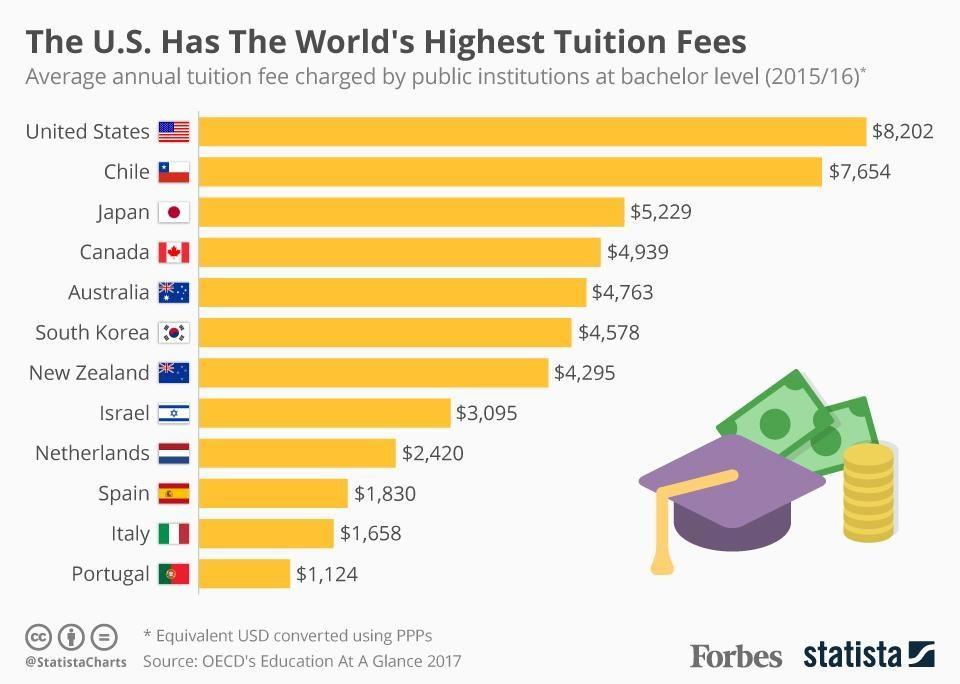College tuition is becoming more and more expensive as funding state programs are either drastically reduced or altogether abolished. Since the opportunities for free high-quality college education become limited, the millennial generation has fewer chances for getting it (Davidson et al., 2018). With the costs of college education constantly rising, the millennial generation is set up for failure compared to previous generations.

The college education helps students to acquire knowledge and skills necessary in their future professional life and career. The constant growth in college fees that increase at rates disproportional to inflation poses a challenge for those who want to get a high quality education. Indeed, as seen from Figure One, tuition fees increased by about 25% in ten years while inflation for the same period of time was about 10 to 15 per cent (Figure 1). The disproportional growth threatens to strip many talented milletmeals and z-generation young people of all opportunities to get a high-quality education.

America’s the world’s leading country in tuition fees students pay for their education (Figure 2). While it testifies to the unparallel quality of American educational systems that attracts hundreds of people from abroad, domestic students face difficulties paying large fees. This results in the situation when more and more adults are admitted to colleges since they cannot afford the education at an earlier age (Kasworm, 2020). Grant and entry support programs should be enhanced to embrace larger numbers of domestic students who cannot afford the costs of education (Johnson, 2019). Moreover, public control of the colleges’ spending should be instituted so that fees are not purposefully overestimated.
If left unchecked, tuition fees are going to grow out of all proportion with the increase in people’ wages, resulting in a situation where the most talented youths are left out of opportunities to embark on a career fit to their abilities and aspirations.
It is high time we raised our voices against unprecedented growth in college tuition fees, making governmental bodies pay attention to this problem. Once we are heard, college fees can be reduced to help millions of millennials and z-generation youths embark on careers they envisage.
References
Davidson, C. T., Ashby-King, D. T., & Sciulli, L. J. (2018). The higher education funding revolution: An exploration of statewide community college “free tuition” programs.Community College Journal of Research and Practice. Web.
Johnson, D. M. (2019). Tuition crisis: The costs and financing of public higher education. In The Uncertain Future of American Public Higher Education (pp. 11-25). Palgrave Macmillan, Cham. Ferri, F., Grifoni, P., & Guzzo, T. (2020).
Kasworm, C. (2020). Adult Workers as Learners in the USA Higher Education Landscape. In Inequality, innovation and reform in higher education (pp. 221-235). Springer, Cham.